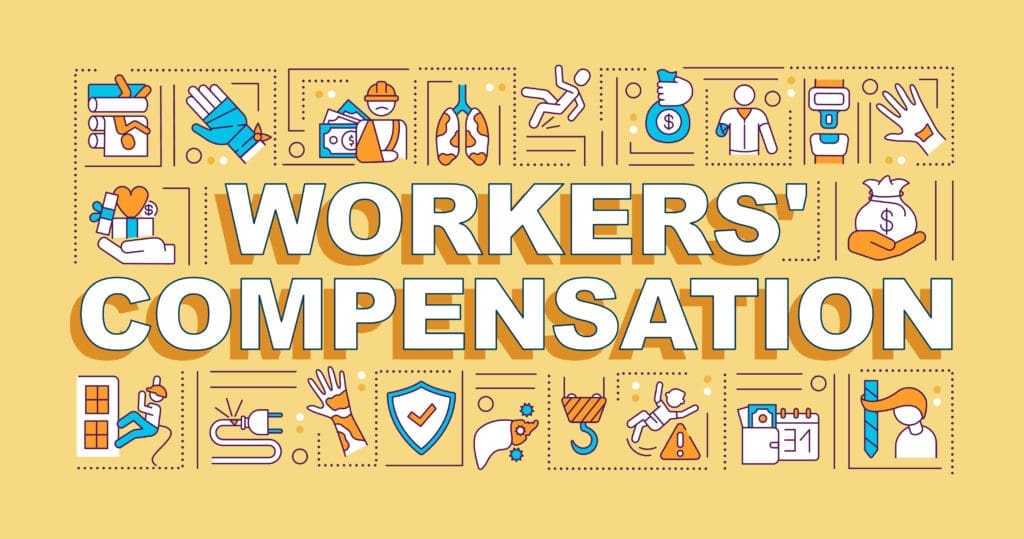How to Understand Workers Comp Codes in Louisiana
Have you ever struggled to understand workers comp codes in Louisiana? Do not worry: You are not alone. At Canal HR, we work with workers comp codes all the time and can help you get to the bottom of things.
Keep reading for a breakdown of worker comp codes in Louisiana and what they are used for.

What Are Workers Comp Codes?
Workers comp codes, also called classification codes or class codes, are codes, usually consisting of three or four numbers, that insurance companies use to identify specific types of work. Worker comp codes are based on the risks associated with the different types of work, and these are then used to determine workers comp rates.
While some states have their own method for organizing workers comp codes, Lousinana uses the codes established by the National Council on Compensation Insurance (NCCI). The NCCI is a nonprofit organization that gathers and analyzes data annually on over four million workers’ comp claims and two million policies.
But how do workers comp codes work in Louisiana? Where can you find Louisiana workers comp codes? And how can you get the compensation rate from a workers comp code? Keep reading and you will find all your answers below.
How Are Worker Comp Codes Used in Louisiana?
Insurance companies in Louisiana use the workers comp codes established by the NCCI to estimate the level of risk associated with a job. Every code describes a particular job and the potential hazards that could occur with performing it. This is what makes workers comp codes an important factor in determining workers compensation rates.
Riskier jobs carry higher premiums. For example, a secretary who works at an IT company (code 8810) is at less risk of injury than someone who raises and races horses (code 8279), and that person is at less risk of injury than someone who works on construction sites (code 0042).
Since there is less risk associated with an IT desk job compared to a construction site job, it costs insurance companies much less money to insure the secretary. In this case, workers comp code 8810 is associated with a less expensive rate than workers comp code 0042.
Louisiana is under the state jurisdiction of the NCCI. This is good because that means that workers comp codes in Louisiana are relatively simple and consistent. Insurance companies in Louisiana use the NCCI’s nationalized worker comp codes to determine workers comp rate.
However, there are other factors that determine worker comp rates, and contribute to extremely high worker comp rates.
Breaking Down Worker Comp Rates
There are many factors like gaps in coverage, employee turnover, whether your company is expanding or downsizing, and your company’s overall financial stability, that can contribute to extremely high workers comp rates in Louisiana. However there are three main factors that can affect worker comp rates, outside of just workers comp codes. These factors are:
1. Payroll
Payroll usually includes things such as wages, salaries, bonuses, and overtime. It excludes things like tips, gratuities, employee savings plans, and employee discounts.
The cost of your workers comp cost depends on your annual payroll. It is critical that you report your company’s payroll accurately because the declared amount will directly affect your workers comp rate.
When you shop for workers comp insurance for your business, use an average of your monthly payroll for the estimate. Insurance companies will ask you to provide an estimate of your payroll, which they will then use to calculate your estimated premium. Keep track of any payroll changes throughout the year, such as promotions or new hires, to ensure your compensation coverage is accurate and up to date as possible.
2. Experience Modification Rate, or MOD
Insurance companies will also consider your history of claims. They use what is called an “experience modification factor” or “experience mod” when determining your workers comp rate. This factor is a reflection of your workplace safety compared to other similar businesses and it must be included in defining your rate.
An experience mod of 1.0 is considered the industry average. An experience mod of more than 1.0 is called a debit mod. This means your losses are greater than the average and you will likely pay more for insurance. If your experience mod is less than 1.0 it is called a credit mod, which means your losses are less than the average. This could result in a discounted premium.
3. How long has a company been in business?
If your company is new, you won’t have enough workers comp claim history. Until you have an experience MOD that can be factored into your compensation rates, newer companies will likely have to pay more for workers comp insurance. Over time, your business will establish a claim history and your insurance will re-evaluate your compensation rates.
By promoting and practicing workplace safety, you can influence your experience mod and your rates considerably. The fewer claims you have, the better your experience mod—and the greater chance that you’ll qualify for a lower premium.
Buy Workers Comp Insurance with Canal HR
If you’re a small business owner in Louisiana who wants to learn more about workers comp codes, rates, employee benefits, and more, Canal HR can get the information you’ve been looking for. Contact us today to talk with one of our workers comp experts about our services and how we can get your business and employees the right protection for the right cost.

